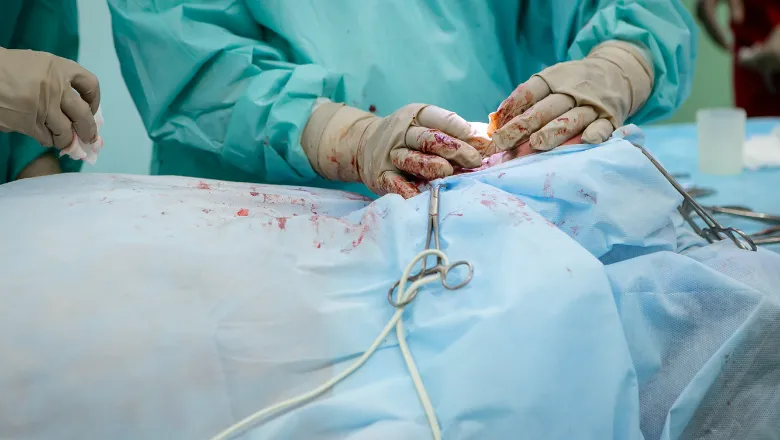These numbers have not reduced during the current pandemic. Given coronavirus, older adults with hip fracture do not want to be in hospital any longer than necessary for a safe discharge home. Our study demonstrated that a small step of supporting these people to get out of bed early after their surgery could facilitate an earlier discharge home.
Dr Katie Sheehan, from the School of Population Health & Environmental Sciences
27 October 2020
Getting out of bed within 36-hours of hip surgery can lead to earlier discharge
Getting out of bed within 36-hours of surgery after a hip fracture can lead to an earlier discharge from hospital, research has found.

The study, published recently in Age and Aging and funded by the NIHR Research for Patient Benefit, investigates the effect of early mobilisation on discharge times.
The average person with a broken hip is 83 years old and clinical guidance suggests hospital staff should help patients get out of bed within 36 hours of their emergency surgery. However, researchers found the evidence to support this guidance was limited and there was no policy in place to ensure early mobilisation.
Researchers examined records for 135,104 people older than 60 years old who had surgery for hip fracture between 2014 and 2016 in England and Wales. Eight out of ten people (79%) mobilised within 36-hours of surgery after a hip fracture, and this led to a two-fold increase in the chance of earlier discharge compared to those who mobilised after 36 hours.
Dr Katie Sheehan, from the School of Population Health & Environmental Sciences, said: “Hip fracture is an unexpected trauma that affects more than 65,000 older adults each year in the UK."
Further research will ask whether mobilising within 36-hours of surgery had a different impact on time to discharge for patients with dementia, delirium, low blood pressure and poor ability to walk before their fracture compared to those without these conditions and better ability to walk before their fracture.

